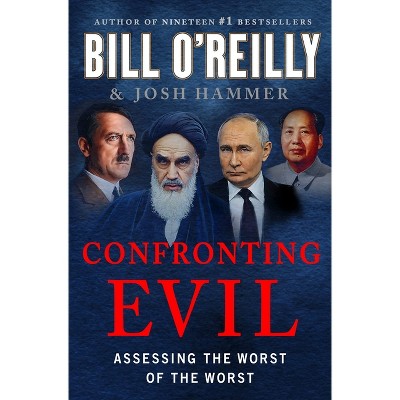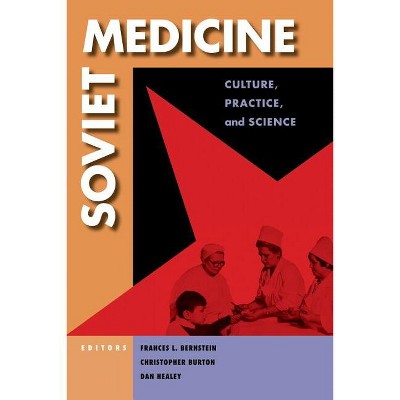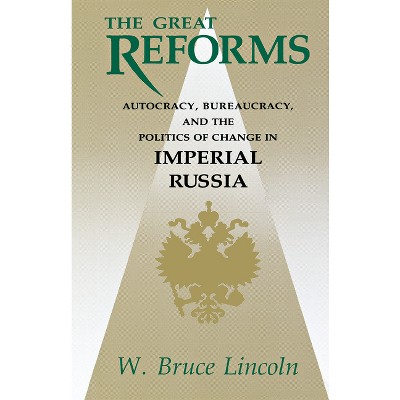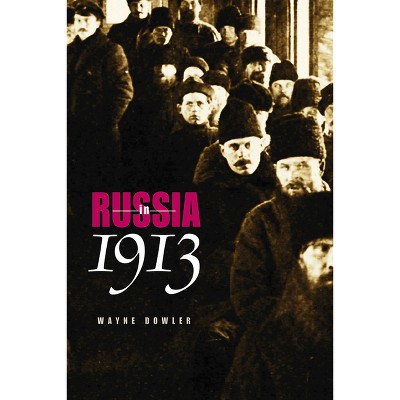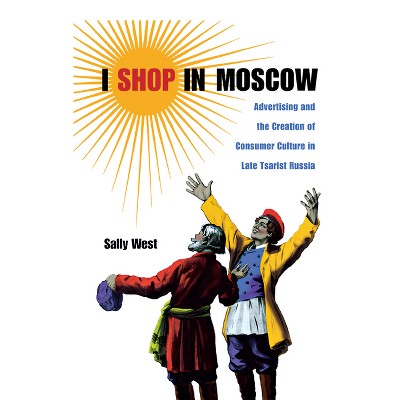Speaking in Soviet Tongues - (Niu Slavic, East European, and Eurasian Studies) by Michael S Gorham (Hardcover)

About this item
Highlights
- From the classical dialogues of Plato to current political correctness, manipulating language to advance a particular set of values and ideas has been a time-honored practice.
- About the Author: Michael S. Gorham is Professor of Russian Studies in the Department of Languages, Literatures and Cultures at the University of Florida.
- 277 Pages
- History, Russia & the Former Soviet Union
- Series Name: Niu Slavic, East European, and Eurasian Studies
Description
About the Book
From the classical dialogues of Plato to current political correctness, manipulating language to advance a particular set of values and ideas has been a time-honored practice. During times of radical social and political change, the terms of debate themselves become sharply contested: how people reject, redefine, and reappropriate key words and phrases gives important symbolic shape to their vision of the future. Especially in cataclysmic times, who one is or wants to be is defined by how one writes and speaks.
The language culture of early Soviet Russia marked just such a tenuous state of symbolic affairs. Partly out of necessity, partly in the spirit of change, Bolshevik revolutionaries cast off old verbal models of identity and authority and replaced them with a cacophony of new words, phrases, and communicative contexts intended to define and help legitimatize the new Soviet order. Pitched to an audience composed largely of semiliterate peasants, however, the new Bolshevik message often fell on deaf ears. Embraced by numerous sympathetic and newly empowered citizens, the voice of Bolshevism also evoked a variety of less desirable reactions, ranging from confusion and willful subversion to total disregard. Indeed, the earliest years of Bolshevik rule produced a communication gap that held little promise for the makings of a proletarian dictatorship. This gap drew the attention of language authorities--most notably Maxim Gorky--and gave rise to a society-wide debate over the appropriate voice of the new Soviet state and its citizenry. Drawing from history, literature, and sociology, Gorham offers the first comprehensive, interdisciplinary analysis of this critical debate, demonstrating how language ideologies and practices were invented, contested, and redefined. Speaking in Soviet Tongues shows how early Soviet language culture gave rise to unparalleled verbal creativity and utopian imagination while sowing the seeds for perhaps the most notorious forms of Orwellian "newspeak" known to the modern era.Book Synopsis
From the classical dialogues of Plato to current political correctness, manipulating language to advance a particular set of values and ideas has been a time-honored practice. During times of radical social and political change, the terms of debate themselves become sharply contested: how people reject, redefine, and reappropriate key words and phrases gives important symbolic shape to their vision of the future. Especially in cataclysmic times, who one is or wants to be is defined by how one writes and speaks.
The language culture of early Soviet Russia marked just such a tenuous state of symbolic affairs. Partly out of necessity, partly in the spirit of change, Bolshevik revolutionaries cast off old verbal models of identity and authority and replaced them with a cacophony of new words, phrases, and communicative contexts intended to define and help legitimatize the new Soviet order. Pitched to an audience composed largely of semiliterate peasants, however, the new Bolshevik message often fell on deaf ears.
Embraced by numerous sympathetic and newly empowered citizens, the voice of Bolshevism also evoked a variety of less desirable reactions, ranging from confusion and willful subversion to total disregard. Indeed, the earliest years of Bolshevik rule produced a communication gap that held little promise for the makings of a proletarian dictatorship. This gap drew the attention of language authorities--most notably Maxim Gorky--and gave rise to a society-wide debate over the appropriate voice of the new Soviet state and its citizenry.
Drawing from history, literature, and sociology, Gorham offers the first comprehensive, interdisciplinary analysis of this critical debate, demonstrating how language ideologies and practices were invented, contested, and redefined. Speaking in Soviet Tongues shows how early Soviet language culture gave rise to unparalleled verbal creativity and utopian imagination while sowing the seeds for perhaps the most notorious forms of Orwellian "newspeak" known to the modern era.
Review Quotes
"A first-rate book that explains, better than anything else in print, the origins and inner workings of the Stalinist language culture. Gorham breaks new ground, writing with zest and elegance as he tells a fascinating story."--Victoria Bonnell, University of California
"A rare thing indeed, a wholly original work of scholarship. Gorham's work is truly outstanding."
-James von Geldern, Macalester College
About the Author
Michael S. Gorham is Professor of Russian Studies in the Department of Languages, Literatures and Cultures at the University of Florida.
Shipping details
Return details
Trending History

